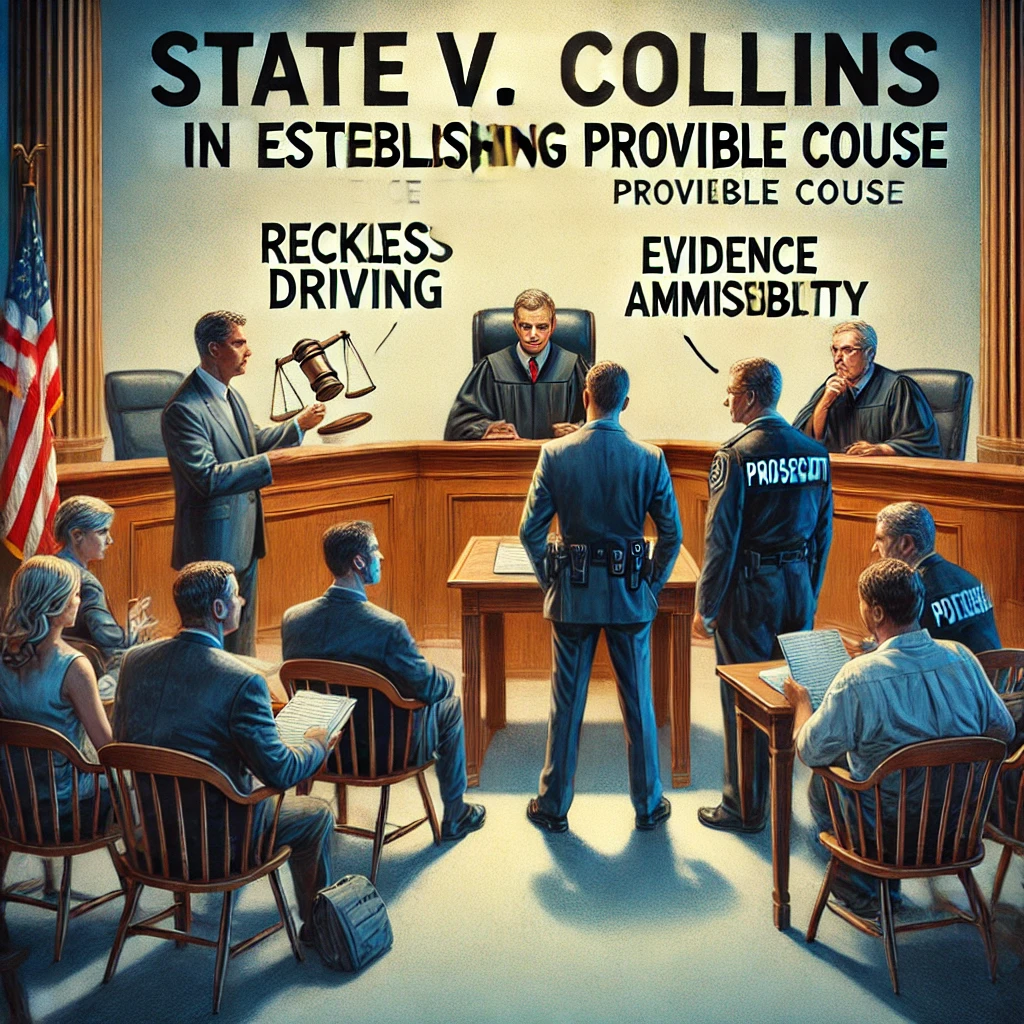Introduction: State v. Collins, 124 Wn. App. 1036 (Wash. Ct. App. 2004), is a landmark case in Washington law that underscores the significance of reckless driving in establishing probable cause for arrest. This case highlights how a suspect’s behavior on the road can directly influence the legality of subsequent searches and the admissibility of evidence. In this article, we explore the critical role that reckless driving played in this case and its broader implications for law enforcement and criminal defense.
Case Background: In State v. Collins, the defendant was arrested after exhibiting reckless driving, which led law enforcement officers to believe that a crime was being committed. The subsequent search of Collins’ vehicle uncovered a controlled substance, leading to charges of unlawful possession. Collins argued that the search was unconstitutional due to a lack of probable cause, aiming to suppress the evidence obtained during the search.
Reckless Driving and Probable Cause: The court’s decision hinged on whether the reckless driving observed by the officers provided sufficient probable cause to justify the arrest and search. The court affirmed that reckless driving, particularly when it poses a significant danger to public safety, can establish the necessary probable cause for law enforcement to take further action. In this case, the officers’ observation of Collins’ erratic and dangerous driving behavior gave them a reasonable basis to believe that criminal activity was occurring, justifying the search that led to the discovery of the controlled substance.
Key Legal Takeaways:
- Reckless Driving as a Basis for Probable Cause:
The ruling in State v. Collins reinforces the idea that reckless driving can be a strong indicator of criminal behavior, providing law enforcement with the grounds needed to establish probable cause. This case illustrates that when a driver’s actions create a substantial risk of harm, officers are justified in conducting searches to prevent further danger and uncover potential criminal activity. - Impact on Evidence Admissibility:
The court’s decision also highlights how reckless driving can directly impact the admissibility of evidence in criminal cases. In this instance, the probable cause established by Collins’ driving behavior allowed the court to admit the evidence obtained during the search, ultimately leading to a conviction. This sets a precedent for how similar cases may be handled in the future. - Implications for Law Enforcement:
State v. Collins serves as a critical reminder for law enforcement officers regarding the importance of documenting and acting on reckless driving incidents. It provides clarity on how such behavior can be legally interpreted as probable cause, empowering officers to take necessary actions to protect public safety and enforce the law.
Conclusion: State v. Collins emphasizes the significant role that reckless driving plays in establishing probable cause in Washington State. This case is a pivotal example of how dangerous driving behaviors can lead to lawful searches and the admissibility of evidence in criminal cases.
For more detailed legal insights and resources, explore our client resources here.
About Blanford Law:
At Blanford Law, we are committed to providing relentless, fair, and honest legal representation. With over 20 years of experience, Ken Blanford founded our firm on the belief that every client deserves respect and the best possible defense, free from assumptions or preconceived notions. If you or someone you know is facing criminal charges or has been injured due to someone else’s negligence, please contact us anytime at 253-720-9304 or email us at info@blanfordlaw.com.

